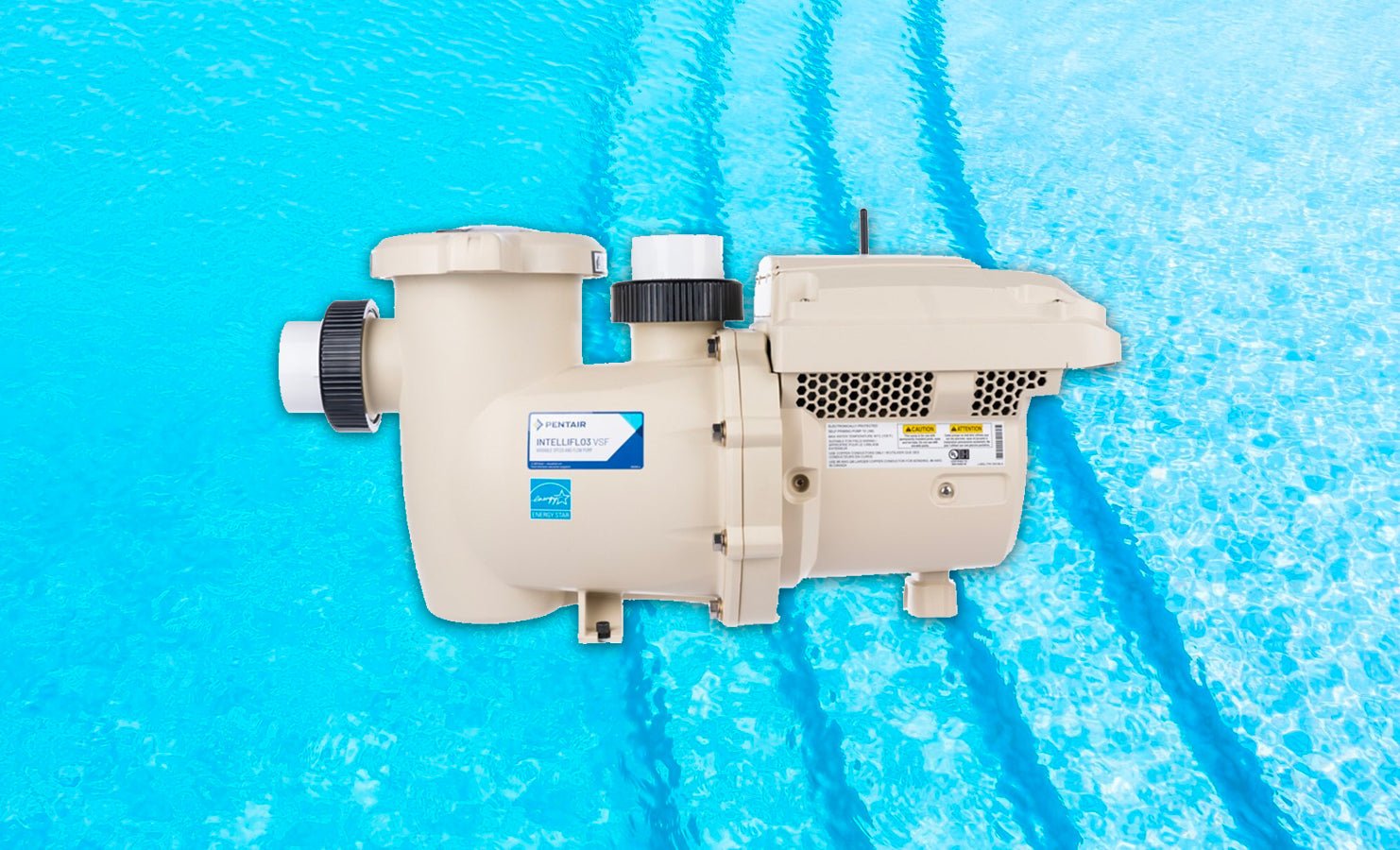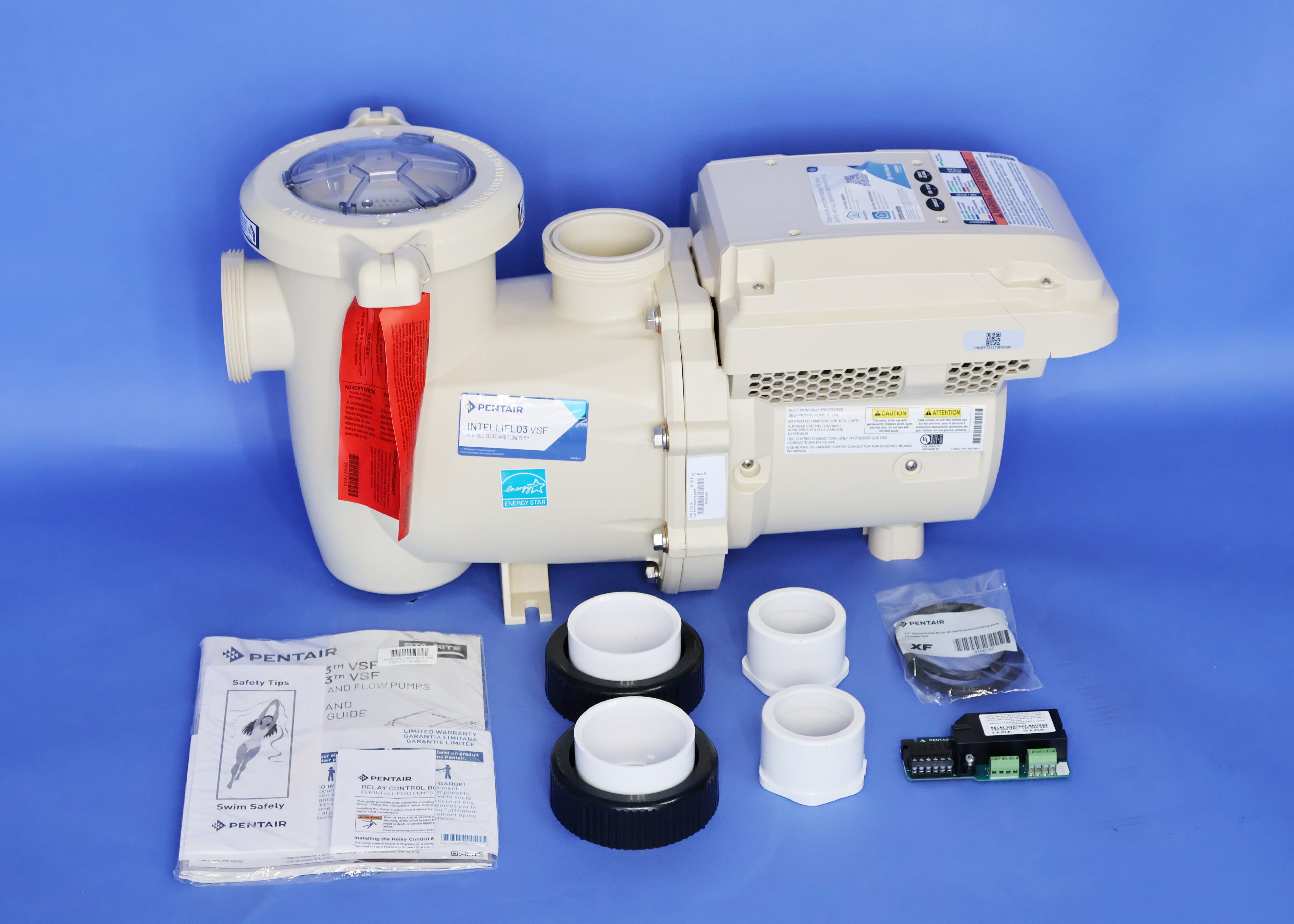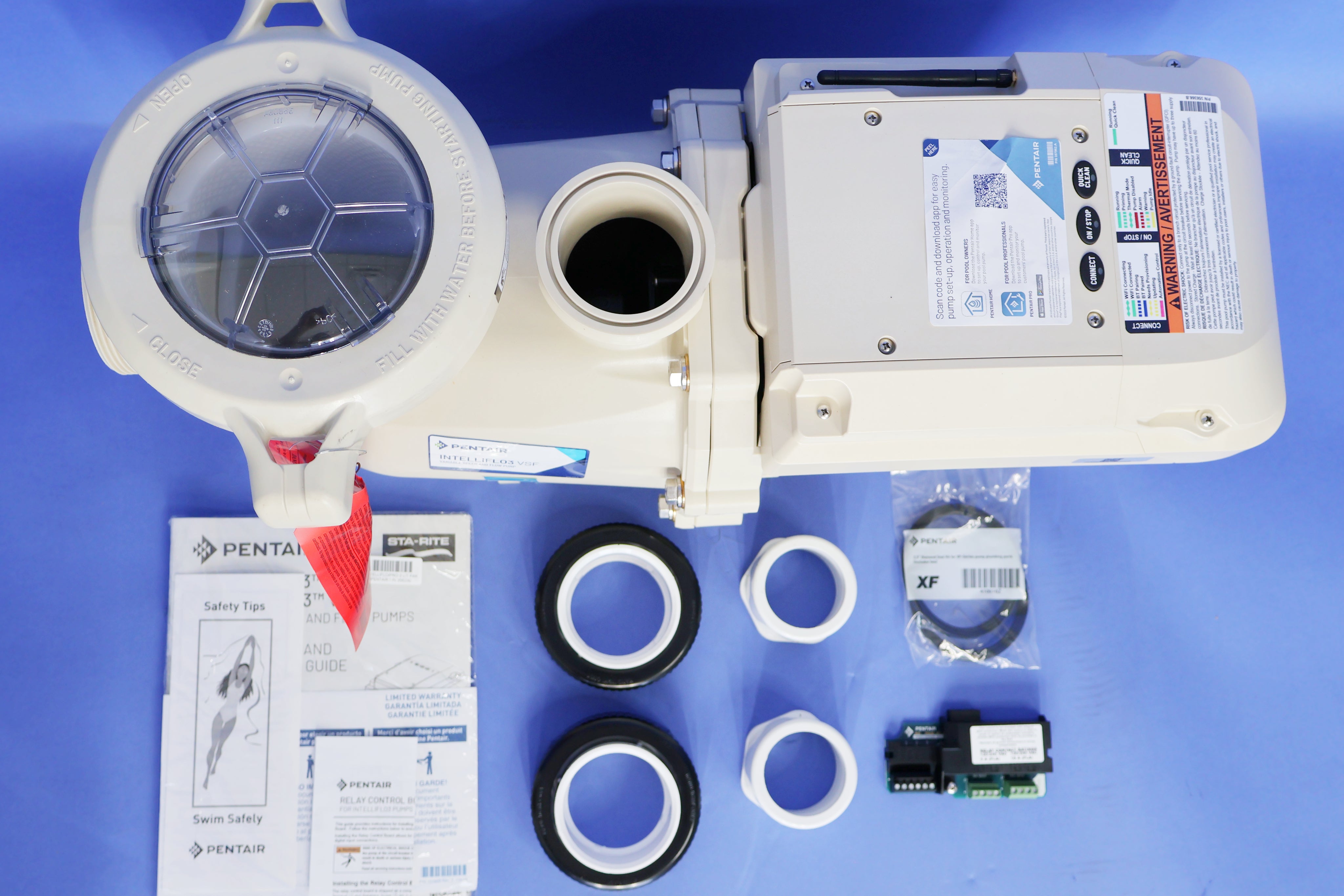Choosing the Right Pool Pump: Factors to Consider before Making a Purchase
Are you looking to purchase a new pool pump but feeling overwhelmed by the options available? Choosing the right pool pump is essential for maintaining a clean and efficient swimming pool. With so many different factors to consider, it can be challenging to know where to start. But don't worry, we're here to help!
In this article, we'll guide you through the process of choosing the right pool pump based on your specific needs. We'll discuss the importance of pump size, horsepower, and flow rate, as well as the different types of pumps available on the market. Whether you have an above-ground or in-ground pool, understanding these factors will allow you to make an informed decision and ensure that your pool stays sparkling clean and well-maintained.
So, whether you're a pool owner looking to replace an old pump or a first-time pool owner in need of guidance, this article will provide you with the information you need to make the right choice. Let's dive in and find the perfect pool pump for you!

Importance of choosing the right pool pump
The pool pump is the heart of your swimming pool's circulation system. It is responsible for keeping the water moving, which helps distribute chemicals, remove debris, and prevent stagnation. Choosing the right pool pump is crucial for maintaining water clarity, preventing algae growth, and ensuring proper filtration.
When selecting a pool pump, it's essential to consider the size and volume of your pool. A pump that is too small will not be able to circulate the water effectively, leading to poor filtration and water quality issues. On the other hand, an oversized pump can waste energy and may cause damage to your pool's plumbing system.
Types of pool pumps
There are three main types of pool pumps: single-speed, dual-speed, and variable speed. Single-speed pumps have a fixed RPM (revolutions per minute) and operate at maximum speed at all times. They are the most common type of pump but are not as energy-efficient as other options.
Dual-speed pumps offer the flexibility of running at either high or low speed. High speed is used for regular pool cleaning and maintenance, while low speed is more energy-efficient and suitable for filtration. These pumps are a good compromise between single-speed and variable speed pumps.
Variable speed pumps are the most energy-efficient option and allow you to adjust the pump's speed to meet your pool's specific needs. They can save up to 90% on energy costs compared to single-speed pumps. While they are initially more expensive, the long-term energy savings make them a worthwhile investment.

Factors to consider before purchasing a pool pump - pool size, flow rate, energy efficiency, noise level, and maintenance requirements
When choosing a pool pump, several factors should be taken into consideration to ensure that it meets your pool's requirements. These factors include pool size, flow rate, energy efficiency, noise level, and maintenance requirements.
Pool size
The size of your pool is an essential factor in determining the right pump size. A larger pool will require a more powerful pump to circulate the water effectively. On the other hand, a smaller pool will need a smaller pump to avoid excessive flow rates that can cause damage to the pool's plumbing system.
To determine the appropriate pump size for your pool, you can use a pool pump sizing guide or consult with a pool professional. They will consider factors such as pool volume, turnover rate, and resistance to flow to recommend the right pump size for your specific needs.
Flow rate
The flow rate of a pool pump is measured in gallons per minute (GPM) and determines how quickly the water circulates through the pool's filtration system. The flow rate should be sufficient to ensure effective filtration and distribution of chemicals.
A higher flow rate is generally desirable as it allows for faster turnover of the pool water, which helps maintain water clarity. However, it's important to strike a balance as an excessively high flow rate can cause excessive wear and tear on the pool pump and filtration system.
Energy efficiency
Energy efficiency is an important consideration when purchasing a pool pump, as it can significantly impact your electricity bills. Single-speed pumps are the least energy-efficient option, while variable speed pumps offer the highest energy savings.
Look for pool pumps with an Energy Star certification, as these pumps meet strict energy efficiency criteria set by the Environmental Protection Agency (EPA). Investing in an energy-efficient pump may have a higher upfront cost but will save you money in the long run.
Noise level
The noise level of a pool pump can be a significant consideration, especially if your pool is located near living areas or neighbors. Single-speed pumps tend to be the loudest, while variable speed pumps are generally quieter due to their ability to operate at lower speeds.
If noise is a concern, look for pool pumps with noise reduction features such as insulated motor enclosures or variable speed options that allow you to run the pump at a lower speed during quieter times.
Maintenance requirements
Regular maintenance is essential to keep your pool pump running smoothly and efficiently. Consider the maintenance requirements of different pump models before making a purchase. Look for pumps with easy access to the strainer basket and a clear lid for easy inspection and cleaning.
Additionally, consider the availability of replacement parts and the reputation of the manufacturer for customer support. Choosing a pump from a reputable brand can ensure that you have access to spare parts and technical support if needed.
Pool pump sizing guide
When shopping for a pool pump, you will come across various specifications such as horsepower, flow rate, and head pressure. Understanding these specifications will help you make an informed decision and select the right pump for your pool.
Horsepower
Horsepower (HP) is a measure of the pump's motor power. A higher horsepower pump will be able to move water more quickly, which can be beneficial for larger pools or pools with high resistance to flow. However, it's important to note that higher horsepower does not necessarily mean better performance if the pump is oversized for your pool.
To determine the appropriate horsepower for your pool pump, consider factors such as pool size, flow rate requirements, and resistance to flow. Consulting with a pool professional can help ensure that you choose the right pump for your specific needs.
Flow rate
The flow rate of a pool pump determines how quickly the water circulates through the pool's filtration system. It is measured in gallons per minute (GPM) and should be sufficient to ensure effective filtration and distribution of chemicals.
To determine the appropriate flow rate for your pool pump, consider factors such as pool size, desired turnover rate, and resistance to flow. A higher flow rate is generally desirable as it helps maintain water clarity, but it's important to strike a balance to avoid excessive wear and tear on the pump and filtration system.
Head pressure
Head pressure refers to the resistance that the pump needs to overcome to circulate water through the pool's plumbing system. It is measured in feet of head (ft. of head) and includes factors such as pipe length, elevation changes, and the presence of additional equipment such as heaters or filters.
When selecting a pool pump, consider the head pressure requirements of your pool. A pump with sufficient head pressure capabilities will be able to overcome the resistance in your pool's plumbing system and ensure proper circulation.
Understanding pool pump specifications - horsepower, flow rate, and head pressure
In addition to the basic specifications, there are several features that you should consider when choosing a pool pump.
Variable speed options
Pumps with variable speed options allow you to adjust the pump's speed based on your pool's specific needs. This can help optimize energy efficiency and reduce operating costs. Variable speed pumps are also generally quieter and offer more flexibility in terms of water circulation.
Self-priming capabilities
A self-priming pump is designed to automatically remove air from the system and maintain a consistent flow of water. This can make installation and operation easier, as there is no need to manually prime the pump each time it is started.
Durability
Look for pool pumps made from high-quality materials that are designed to withstand the harsh pool environment. Stainless steel or corrosion-resistant components can help ensure the longevity and durability of the pump.
Pool pump features to look for - variable speed options, self-priming capabilities, and durability
When comparing different pool pump brands and models, consider factors such as reputation, customer reviews, warranty, and price. Researching the experiences of other pool owners can provide valuable insights into the reliability and performance of different pumps.
Additionally, consider the availability of spare parts and technical support. Opting for a well-established brand with a wide network of service providers can make maintenance and repairs easier.
Comparing different pool pump brands and models
Proper installation and maintenance are essential to ensure the optimal performance and longevity of your pool pump. Follow these tips to get the most out of your pool pump:
1. Install the pump on a level, stable surface to minimize vibration and noise.
2. Ensure proper electrical connections and grounding to prevent electrical hazards.
3. Regularly clean the pump's strainer basket and remove any debris.
4. Check and clean the pump's impeller regularly to prevent clogging.
5. Follow the manufacturer's guidelines for backwashing and cleaning the pool filter.
6. Schedule regular maintenance inspections with a pool professional to detect and address any issues early on.
Pool pump installation and maintenance tips
Despite regular maintenance, pool pumps can sometimes experience issues. Here are some common problems and troubleshooting tips:
1. Pump not priming: Check for air leaks in the suction line, tighten all connections, and ensure the water level is adequate.
2. Low flow rate: Clean the pump's strainer basket and filter, check for clogged impellers or pipes, and ensure the pump is running at the appropriate speed.
3. Noisy operation: Check for loose or worn-out parts, inspect the impeller for debris, and ensure the pump is properly secured to reduce vibration.
If you encounter persistent or complex issues, it's best to consult with a pool professional or contact the pump manufacturer for assistance.
Pool pump troubleshooting and common issues
Choosing the right pool pump is essential for maintaining a clean and efficient swimming pool. By considering factors such as pool size, flow rate, energy efficiency, noise level, and maintenance requirements, you can select a pump that meets your specific needs.
Remember to consult with a pool professional and research different pump brands and models to ensure you make an informed decision. Proper installation, regular maintenance, and troubleshooting when necessary will help keep your pool pump running smoothly and extend its lifespan.
So, whether you're a pool owner looking to replace an old pump or a first-time pool owner in need of guidance, understanding these factors will allow you to make the right choice. Invest in the perfect pool pump and enjoy a sparkling clean and well-maintained pool all season long!

Popular variable speed pumps to consider
Pentair IntelliFlo3® VSF - 011076
Pentair IntelliFlo3™ VSF Pool Pump With I/O Board 011076
Pentair IntelliFlo3 VSF 1.5HP With Touchscreen and I/O Board 011068
Most Recent & Related Pool Supply Articles: Component Diagnosis: Identifying Common Pool Equipment Failures, Jandy NeverLube Diverter Valves: Sizing and Selection Guide, Most Popular Pool Cleaner Parts to Replace Before the Summer Heat Hits





Leave a comment